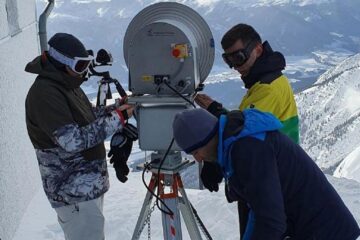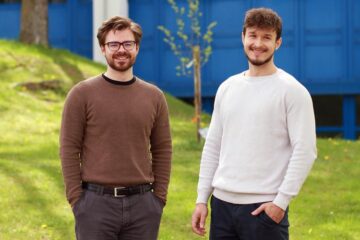Bio-nanotechnology to kill cancer cells

Carbon nanotubes have already found applications in engineering but so far any biological application has been hampered by their poor interaction with biological systems. The Surrey team has overcome this problem by wrapping DNA and RNA around carbon nanotubes making them biocompatible.
The aim of the project is to attach additional molecules to the RNA-wrapped carbon nanotubes to target them towards cancer cells. In combination with laser treatment the carbon nanotubes may then be used to kill the cancer cells. Although there is still a long way to go before any new drugs based on this technology are developed, the scientists hope that their work will eventually lead to more effective treatments for cancer.
The multidisciplinary project involves biologists, engineers and physicists from the University of Dresden in Germany, the University of Toulouse, France, the University of Linz, Austria, the University of Twente, The Netherlands and the University of Surrey. Further information is available from the CARBIO website http://www.carbio.eu/ . The work at Surrey is headed by Professor Johnjoe McFadden, Professor Ravi Silva, and Dr Helen Coley from the disciplines of Electronic Engineering, Biology and Medicine, respectively.
Media Contact
More Information:
http://www.surrey.ac.ukAll latest news from the category: Life Sciences and Chemistry
Articles and reports from the Life Sciences and chemistry area deal with applied and basic research into modern biology, chemistry and human medicine.
Valuable information can be found on a range of life sciences fields including bacteriology, biochemistry, bionics, bioinformatics, biophysics, biotechnology, genetics, geobotany, human biology, marine biology, microbiology, molecular biology, cellular biology, zoology, bioinorganic chemistry, microchemistry and environmental chemistry.
Newest articles

Uranium-immobilizing bacteria in clay rock
Microbial reduction reduces mobility of uranium compounds. When designing repositories for high-level radioactive waste in deep geological layers, various factors must be carefully considered to ensure their long-term safety. Among…

6G mobile communications tested in the Alps
Researchers at the University of Stuttgart achieve strongest connection. Making emergency calls even in remote areas and transmitting large amounts of data in real time? This is possible with the…

Optimising inventory management
Crateflow enables accurate AI-based demand forecasts. A key challenge for companies is to control overstock and understock while developing a supply chain that is resilient to disruptions. To address this,…





















